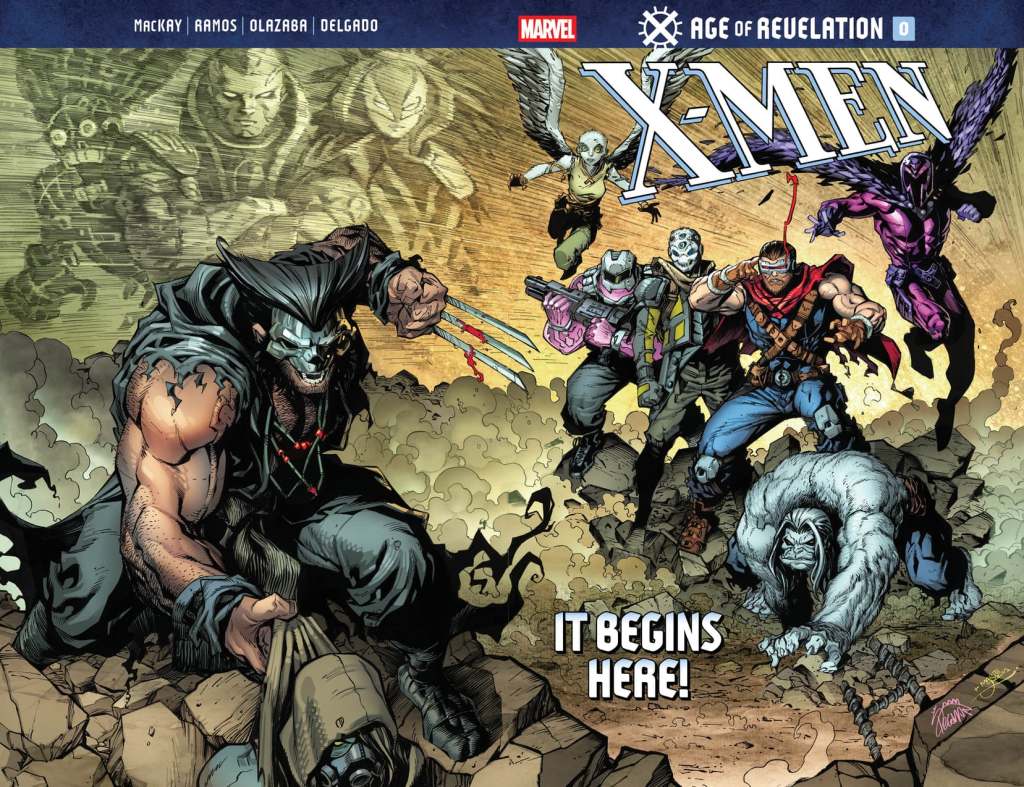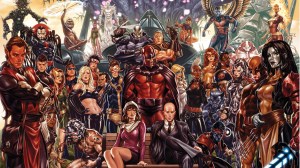The X-Men have had a very interesting 21st century. The team were the stars of the bestselling comics of the ’90s, but by the beginning of the ’00s, they had been creatively worn out, repeating a formula that fans had grown tried of. The ’00s saw Marvel try to break out of that formula, and it had its high point — Grant Morrison’s New X-Men — and its low points — Chuck Austen’s run. After House of M destroyed the X-Men’s status quo, as well as many of the mutants that had been created over the decades, the X-Men fell from grace, mostly because of Marvel’s lack of movie rights to the X-Men. Once Disney purchased 20th Century Fox, that changed and readers got the Krakoa Era, five years of X-Men stories that were if not always good (and they weren’t), then at least interesting.
Videos by ComicBook.com
The Krakoa Era’s ending has led to the remarkably uneven “From the Ashes” reboot, as Marvel editor extraordinaire Tom Brevoort decided that the best thing to do with the X-Men was to embrace the old formulas. The current run of X-Men books aren’t great, although there are some stands out (Uncanny X-Men and Storm). The line has had its shares of failures, but the formula is the same in nearly every book — blatantly copying the X-Men stories of the past to try and bring lapsed readers back. The next big X-Men event is called “The Age of Revelation,” taking place in a future ruled by Revelation, the heir of Apocalypse Doug Ramsey. This is a blatant rip off of the X-Men classic “The Age of Apocalypse,” and it shows the severe lack of creativity, or at least originality, of the current X-office and with it, the harsh reality facing Marvel’s mutants.
The X-Office Is Riding the Dead Horse of the ’90s to Disaster

To understand what the problem is in “From the Ashes” and “The Age of Revelation,” it can be found in what I would consider the four main X-Men titles — Uncanny X-Men, X-Men, Exceptional X-Men, and Wolverine. Historically, Uncanny, X-Men, and Wolverine have been the highest selling titles and form the heart of the line. Each of them, to some extent, copy what’s come before. X-Men, Exceptional X-Men, and Wolverine are the most obvious. X-Men is an unholy amalgamation of ideas from Morrison’s New X-Men and Brian Michael Bendis’s Uncanny X-Men. Exceptional X-Men is basically the New Mutants/Generation X/New X-Men (Vol. 2)/Generation Hope young mutant book, with Generation X alum Emma Frost as one of the leaders and deals with the return of Mister Sinister, one of the main villains of the Krakoa Era.
Wolverine is trying to copy Larry Hama’s ’90s Wolverine run and failing miserably, trying to tell the same kind of soulful Wolverine stories Hama did but never actually finding any profundity and very little actual entertainment value. Uncanny X-Men is the one that only rehashes the vibe and storytelling style of Claremont’s X-Men comics while coming up with its own ideas. It’s outstanding, but it still has that Outback era X-Men feel to it. While there have been some characters spotlighted that rarely had their own books, so many of the ideas behind the books are just repeats of what those characters or other X-Men characters went through. There’s no energy to the X-Men books right now, nothing creative to drive the vast majority of them. The only ideas Brevoort and his editorial staff seem to be bringing is ideas that were done better before.
“The Age of Revelation” is the culmination of this lack of creativity. While it’s not a one-to-one retelling of “The Age of Apocalypse,” it lifts all of the ideas that made “The Age of Apocalypse” so popular. It renames the X-Men series’, pitting familiar characters into an all-new status quo ruled by Revelation, the story’s Apocalypse stand-in. This isn’t even the first time that the X-Men have tried going back to “The Age of Apocalypse” well; before the Krakoa Era, we had “The Age of X-Man,” which took place in an alternate universe controlled by X-Man, and had various renamed titles and new versions of familiar characters against an all-powerful enemy. “The Age of Revelation” is a third generation copy of “The Age of Apocalypse” and one gets the feeling that it’s more being done to hit the event book quota for the X-Men books than it does to actually tell a story that fans need to read.
There’s a certain creative bankruptcy that has defined “From the Ashes.” I want to be clear I’m not impugning the creators behind the books; they were given the chance to pitch books for certain kind of X-Men stories, and tailored their ideas to that. One of the most annoying things about “From the Ashes” so far, however, is whenever the editorial mandated events — two in the span of a year — derail the books to push a narrative that frankly isn’t all that interesting. The X-Men office is following the worst Marvel formula, trapping their books in a mediocre event cycle, and I don’t think “The Age of Revelation” is going to suddenly make it all worthwhile.
“The Age of Revelation” Is Yet Another Symptom of the Issues in the X-Office

The last six years of X-Men comics have been a time of dizzying highs and cavernous lows. The Krakoa Era was a yo-yo of quality, but fans at least got unique ideas in the X-Men books, if not entirely new ones. “From the Ashes” has had some new ideas, but so much of it feels like things that came before. “From the Ashes” might as well be called “From the Rehashes” at this point, because that’s what it feels like. “The Age of Revelation” is another example of this attitude.
Marvel’s biggest problem over the years has been a reticence to move anything forward, and this has damaged the company’s entire line. With the X-Men line in particular, it feels they’ve taken this idea to the nth degree, blatantly rehashing what came before, when the X-Men were popular, in order to convince readers to come back. “From the Ashes” sold well in the beginning, but most of the books have fallen far down the sales charts besides Uncanny and X-Men. “The Age of Revelation” may bring some readers back, but it’s yet another example of the problems in the X-office and sadly, it means that the future for the mutants is anything but bright.
How do you feel about “The Age of Revelation”? Sound off in the comments below.









